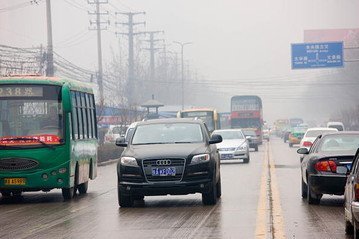Answer to Smog in China: Buy More SUVs

The number of SUVs sold in China jumped 43.4% in the quarter ended March 31 compared with a year earlier, according to IHS Automotive. Total auto-sales volumes were up just 13.8%.
China’s middle-class consumers see SUVs as a status symbol and view them as a safer option on the country’s notoriously dangerous roads, says China auto analyst Michael Dunne.
Ironically, air pollution might be playing a part, too.
China’s government rolled out new fuel-efficiency regulations last month aimed at the country’s air-quality problem. A quirk in those rules could juice the SUV market, says Bernstein auto analyst Max Warburton. Fuel-economy targets based on different car weights—including easier targets for heavier vehicles—mean manufacturers have an incentive to make more SUVs, Mr. Warburton says.
Something similar occurred in the U.S. in the 1980s, when more-relaxed fuel-efficiency standards for heavier cars saw the big auto makers invest heavily in minivans and SUVs.
The big winners should include domestic players like Great Wall Motor and foreigners like Jaguar-Land Rover, owned by India’s Tata Motors.
Related News


